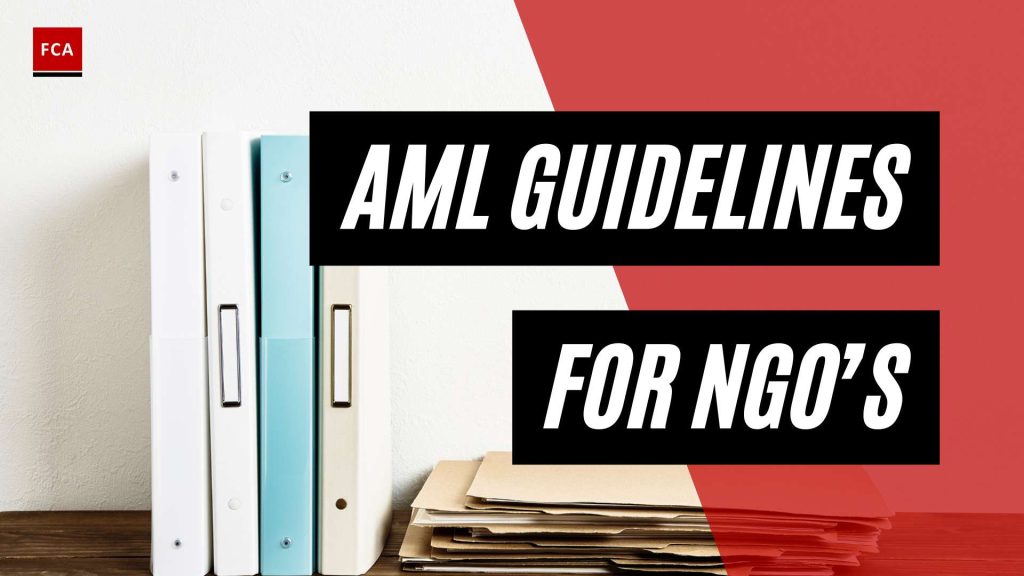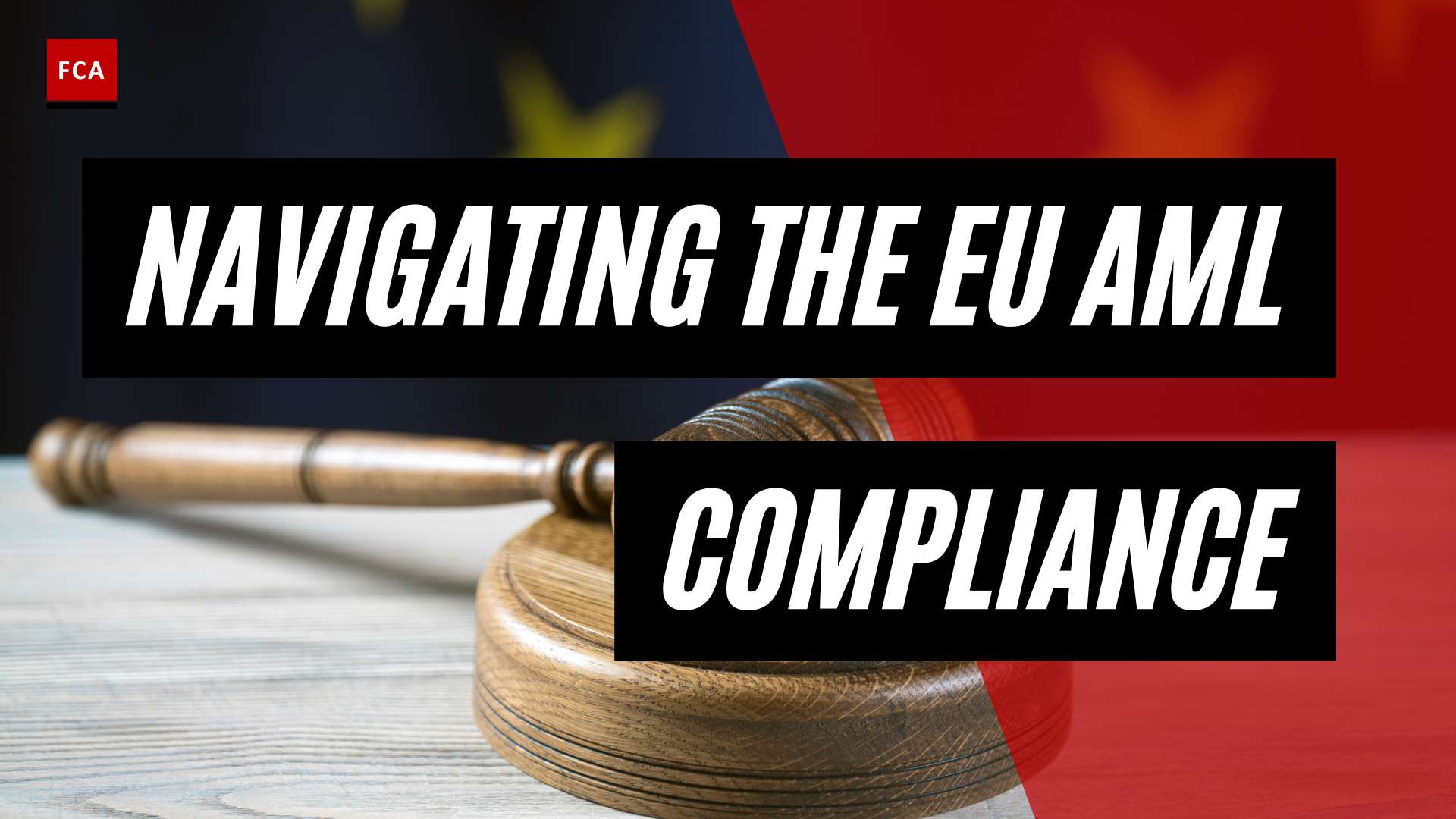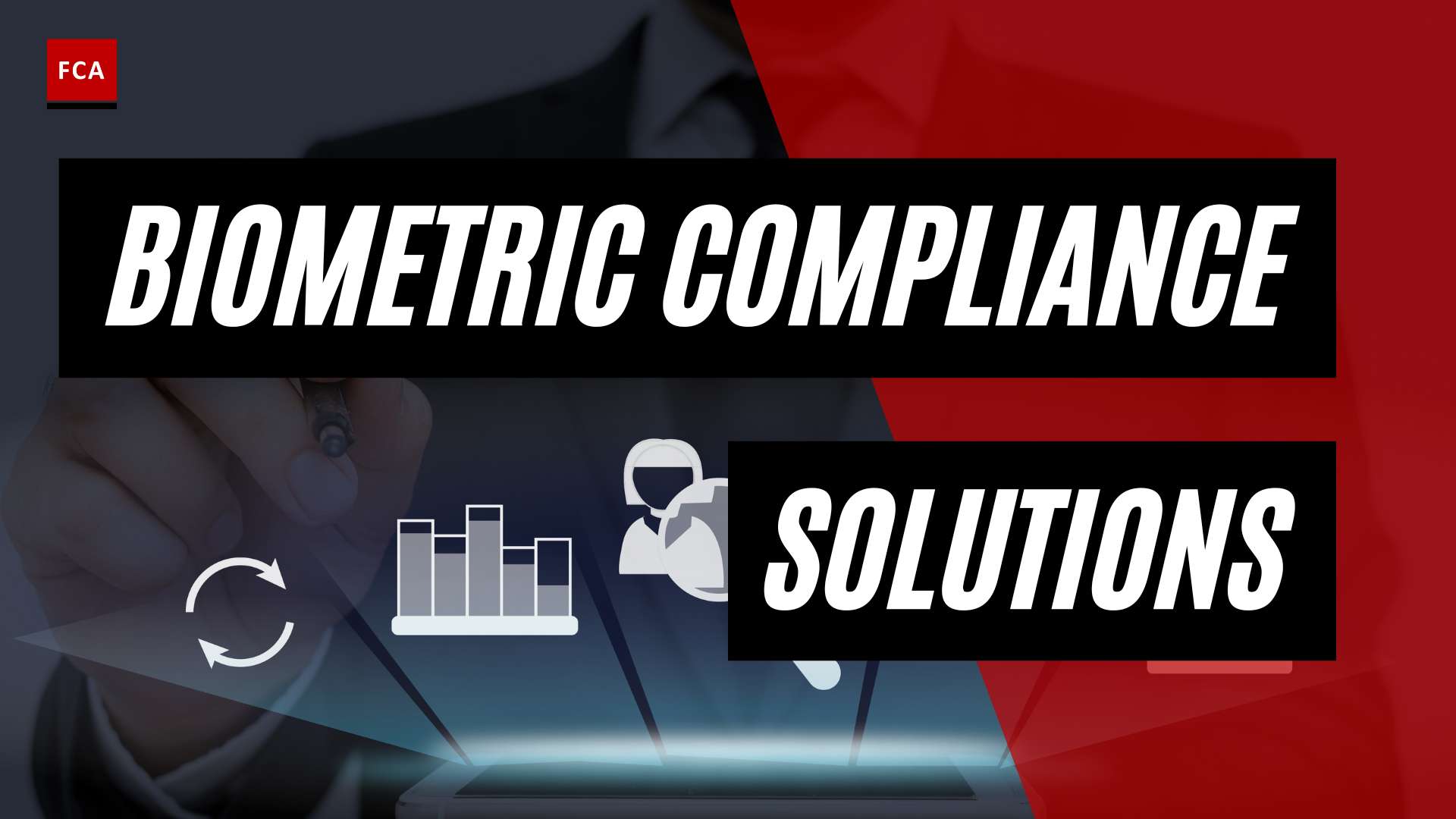Understanding AML Compliance
In the context of NGOs and charities, compliance with anti-money laundering (AML) regulations is of utmost importance. Understanding the significance of AML compliance and the consequences of non-compliance is crucial for these organizations.
Importance of AML Compliance for NGOs and Charities
NGOs and charities play a vital role in society, often relying on donations and funds to support their causes. However, they can be attractive targets for money launderers seeking to legitimize illicit funds. AML compliance is essential to safeguard the integrity of these organizations and protect them from being used as a vehicle for money laundering.
By adhering to AML regulations, NGOs and charities demonstrate their commitment to transparency, accountability, and good governance. They help ensure that the funds they receive are legitimate and not derived from criminal activities. A robust AML compliance program allows these organizations to maintain public trust, attract donors, and fulfill their missions effectively.
Proper AML compliance also helps NGOs and charities mitigate the risks associated with money laundering activities. By conducting due diligence on donations and donors, organizations can identify and prevent the misuse of funds for illicit purposes. This not only protects the organization but also contributes to the overall integrity of the financial system.
Consequences of Non-Compliance
Failure to comply with AML regulations can have severe consequences for NGOs and charities. Non-compliance can lead to reputational damage, loss of public trust, and a negative perception of the organization’s credibility. This can result in a decline in donations and support, hindering the organization’s ability to carry out its charitable activities.
Moreover, non-compliance with AML regulations can have legal and financial implications. Criminal investigations, prosecutions, and regulatory enforcement actions may be initiated against non-compliant organizations. Civil fines, legal costs, and penalties can be imposed, draining the organization’s resources and impacting its sustainability.
It is vital for NGOs and charities to implement robust AML policies, procedures, and training programs to ensure compliance with AML regulations. This includes conducting due diligence on donations and donors, maintaining comprehensive records, and continuously monitoring transactions for suspicious activities. By proactively addressing AML compliance, organizations can protect themselves from the severe consequences of non-compliance.
To learn more about AML regulations specific to NGOs and charities, refer to our sections on AML regulations for NGOs and AML regulations for charities.
AML Regulations for Charities
To combat the risks of money laundering and prevent the misuse of funds, charities must adhere to anti-money laundering (AML) regulations. Understanding the AML directives and compliance requirements is crucial for charities to maintain their integrity and protect against illicit activities.
Overview of Anti-Money Laundering Directives
Anti-Money Laundering Directives, such as the 4th Money Laundering Directive (4MLD) and the 5th Money Laundering Directive (5MLD), play a vital role in mitigating the risks associated with money laundering activities in the charitable sector. These directives provide guidelines and obligations that charities must follow to ensure compliance and prevent the misuse of funds for illicit purposes.
The Financial Action Task Force (FATF), a global intergovernmental organization, has also revised its recommendations to combat money laundering and terrorist financing in the nonprofit sector. Their guidance focuses on preventing the abuse of charitable donations and enhancing transparency and due diligence practices.
Charities need to comply with AML laws and regulations, which may include appointing a compliance officer, establishing due diligence systems, conducting staff training, and verifying donors and beneficiaries as part of the due diligence process, as recommended by the FATF to combat charity money laundering (Sumsub).
Compliance Requirements for Charities
Compliance with AML regulations is crucial for charities to maintain public trust, prevent reputational damage, and protect their operations. Failure to comply with these requirements can lead to various consequences, including regulatory enforcement action, legal costs, civil fines, and potential closure of the charity (Financial Crime Academy).
To ensure compliance, charities should implement robust AML policies, procedures, and training programs. These measures help create a culture of awareness and accountability within the organization, enabling staff members to identify and report any suspicious activities.
Charities should also conduct due diligence on donations and donors. This process involves verifying the legitimacy of funds and assessing the risk associated with potential donors. Conducting due diligence helps prevent charities from being used as a vehicle for money laundering or terrorist financing.
By staying informed about the latest AML regulations and adapting to changes in the regulatory landscape, charities can proactively address potential risks and enhance their overall compliance efforts. Collaboration with financial institutions and relevant AML partners is also crucial for sharing information and ensuring effective implementation of AML measures.
By adhering to AML regulations, charities can protect their integrity, maintain public trust, and contribute to the prevention of money laundering activities. Implementing robust AML policies, conducting due diligence, and staying informed about best practices are key steps towards establishing a secure and compliant environment for charitable organizations.
Implementing Effective AML Policies and Procedures
To ensure compliance with anti-money laundering (AML) regulations and prevent the misuse of funds for illicit activities, charities must implement robust AML policies, procedures, and training programs. By establishing effective AML measures, charities can protect their reputation, maintain the trust of stakeholders, and contribute to the overall integrity of the charitable sector.
Developing Robust AML Policies
Charities should develop comprehensive AML policies tailored to their specific operations and the risks they may encounter. These policies should drive the organization’s activities, providing clear guidelines and frameworks for identifying, assessing, and mitigating AML risks. Key considerations for developing robust AML policies include:
-
Risk Assessment: Conduct a thorough assessment of the organization’s AML risks, taking into account factors such as donation sources, fundraising activities, and international transactions. This assessment helps identify areas of vulnerability and informs the development of appropriate control measures.
-
Donation Acceptance: Establish clear procedures for accepting and vetting donations. Charities should conduct due diligence on both the donors and the sources of funds to ensure their legitimacy. This due diligence process helps mitigate the risk of inadvertently receiving funds derived from criminal activities.
-
Financial Activity Monitoring: Implement mechanisms to monitor financial activities within the organization, such as large cash transactions, wire transfers, and international transactions. Regular monitoring enables the timely detection of suspicious transactions and the implementation of appropriate responses.
Conducting Due Diligence on Donations and Donors
Thorough due diligence procedures are essential for charities to verify the legitimacy of donations and donors. This process involves gathering information about the donor, the purpose of the donation, and the source of funds. By conducting due diligence, charities can identify and assess potential AML risks associated with specific donations. Key steps in conducting due diligence include:
-
Collecting Donor Information: Obtain comprehensive information about the donor, including their identity, contact details, and any relevant affiliations. This information helps verify the donor’s legitimacy and assess their potential risk.
-
Source of Funds Verification: Investigate the source of the donated funds to ensure they are derived from legitimate sources. This verification process involves understanding the nature of the donor’s financial activities and confirming that the funds are not associated with criminal activities.
Staff Training and Awareness
Charities should prioritize staff training and awareness programs to ensure that employees are well-equipped to identify and address potential AML risks. Training programs should cover topics such as AML regulations, the organization’s AML policies and procedures, and the indicators of suspicious transactions. Key elements of staff training and awareness include:
-
AML Regulations: Educate employees on the relevant AML regulations, ensuring they have a clear understanding of their legal obligations and the potential consequences of non-compliance.
-
Recognizing Suspicious Transactions: Train staff to recognize the red flags and indicators of potentially suspicious transactions, such as unusually large donations, frequent small donations, or inconsistent donor information.
-
Reporting Obligations: Inform employees about their reporting obligations and the internal reporting mechanisms within the organization. Encourage a culture of reporting and provide guidance on how to escalate concerns or suspicions.
By implementing these key elements, charities can establish effective AML policies and procedures that mitigate the risk of involvement in money laundering activities. Regular reviews and updates of these policies are crucial to adapt to changing regulatory environments and emerging risks in the charitable sector. Ensuring compliance with AML regulations and promoting a strong culture of vigilance and integrity are essential for charities to fulfill their mission while safeguarding against financial crime.
Mitigating Money Laundering Risks for Charities
To safeguard the integrity of the charitable sector and protect against illicit activities, it is essential for charities to implement effective measures to mitigate money laundering risks. By following best practices, collaborating with financial institutions, and staying informed about changes in regulations, charities can enhance their anti-money laundering (AML) efforts.
Best Practices for Preventing Money Laundering
Charities can adopt several best practices to prevent money laundering and uphold the highest standards of financial integrity. Some recommended practices include:
-
Implement Robust AML Policies: Charities should develop comprehensive financial crime strategies and policies that outline clear operational frameworks and decision-making procedures. These policies should drive the organization’s activities, ensure compliance with the law, and address the specific operational risks faced by the charity.
-
Conduct Due Diligence on Donations and Donors: Charities must conduct thorough due diligence procedures when receiving donations or funds to ensure the legitimacy of the sources of funds. Implementing risk-based procedures, such as screening donors and implementing appropriate measures to mitigate risks associated with specific donations, is crucial to prevent involvement in money laundering activities (Carters Professional Corporation).
-
Staff Training and Awareness: Adequately training staff and volunteers is essential to ensure compliance with AML policies and operational frameworks. Training should cover topics such as risk tolerance, goals, operational standards, and the implementation of assigned responsibilities and decision-making procedures (Sanction Scanner). This helps build a culture of awareness and vigilance within the organization.
Collaboration with Financial Institutions
Charities should collaborate with financial institutions to strengthen their AML efforts. Financial institutions, including banks, have their own due diligence processes to ensure compliance with AML regulations. Charities must provide the necessary information to financial institutions, demonstrating their commitment to regulatory compliance and preventing financial crime. This collaboration helps maintain the integrity of the financial system and ensures that charities have access to the necessary financial services (Sanction Scanner).
Staying Informed and Adapting to Changes
Charities must stay informed about changes in AML regulations and adapt their practices accordingly. Regularly reviewing and updating AML policies and procedures allows charities to align with evolving standards and emerging risks. By actively monitoring regulatory updates and industry developments, charities can proactively address potential vulnerabilities and enhance their AML compliance efforts. Staying informed also includes understanding the risks associated with specific donations, implementing appropriate measures to mitigate those risks, and complying with relevant sanctions and export control rules (Sanction Scanner).
By following best practices, collaborating with financial institutions, and staying informed about changes in regulations, charities can effectively mitigate money laundering risks. These efforts contribute to the overall integrity of the charitable sector, ensuring that funds are used for their intended purposes and that charities continue to make a positive impact in society.
Case Studies and Examples
Examining case studies and examples can provide valuable insights into the impact of fraud and money laundering on charities, particularly in light of the ongoing pandemic.
Charities and Fraud: Impact of the Pandemic
The pandemic has had a significant impact on the vulnerability of charities to fraud. In 2021 alone, UK charities lost £8.6 million due to fraud, with 65% of charities feeling at a higher risk of fraud. Criminals may attempt to misuse a charity’s funds for illicit transactions, investments, purchases, or infiltrate the organization to launder money (Sumsub).
Notable Cases of Charity Money Laundering
Several notable cases highlight how charities can be exploited for money laundering activities. For instance, in the UK, a man was sentenced to 10 years in prison for laundering over £10 million through a charity he ran. This case serves as a stark reminder of how charities can be used as vehicles for illicit financial activities (Sumsub).
Money laundering through charities can take various forms, including impersonating existing charities to deceive donors or establishing shell charities that appear legitimate but are fronts for money laundering operations (Sumsub). These examples underscore the importance of robust anti-money laundering (AML) measures and compliance within the charity sector.
By staying informed about such cases and understanding the tactics employed by criminals, charities can enhance their ability to detect and prevent money laundering activities. Compliance with anti-money laundering laws, including the appointment of compliance officers, staff training, and rigorous due diligence on donors and beneficiaries, is crucial to mitigating the risks associated with money laundering in charities. The guidelines provided by the Financial Action Task Force (FATF) serve as a valuable resource for charities looking to implement effective AML measures (Sumsub).
The case studies and examples mentioned above highlight the real-world implications of money laundering within the charity sector. It is imperative for charities to remain vigilant, ensure compliance with AML regulations, and implement robust policies and procedures to safeguard their operations and maintain the trust of their donors.
The Role of Financial Institutions
Financial institutions, including banks, play a crucial role in the prevention and detection of money laundering in the context of charities. They collaborate with charities, governments, and regulators to combat financial crime and ensure compliance with anti-money laundering (AML) regulations. Financial institutions have specific due diligence processes in place to evaluate the risk associated with their customers, including charities, and to prevent criminals from accessing financial services (Sanction Scanner).
Due Diligence Processes for Charities
Financial institutions, such as banks, are required to conduct due diligence processes to obtain information on their customers, including charities. These due diligence processes involve evaluating the governance rules, processes, and training materials used by charities to control financial crime risks. The purpose of due diligence is to assess the risk associated with providing financial services to charities and to ensure compliance with regulatory requirements.
Due diligence processes for charities typically involve gathering and verifying information about the organization, its purpose, activities, and sources of funding. Financial institutions may request documentation such as registration certificates, governing documents, financial statements, and information about key individuals involved in the charity’s management.
By conducting due diligence on charities, financial institutions can assess the potential risk of money laundering or other financial crimes and make informed decisions about providing financial services to these organizations. This helps to safeguard the integrity of the financial system and prevent illicit funds from being channeled through charities (Sanction Scanner).
Collaboration and Compliance Requirements
Collaboration between financial institutions and charities is essential for effective anti-money laundering (AML) compliance. Financial institutions rely on charities to have robust AML policies and procedures in place to mitigate the risk of money laundering and ensure compliance with AML regulations. Charities should be familiar with regulations on AML, anti-bribery and corruption, counter-terrorism financing (CTF), sanctions, and export restrictions.
Financial institutions require their clients, including charities, to have due diligence systems in place to ensure regulatory compliance and prevent financial crime. The collaboration between financial institutions and charities involves sharing information, conducting risk assessments, and implementing appropriate controls to prevent money laundering risks.
Both financial institutions and charities have a shared responsibility to stay informed about changes in AML regulations and adapt their processes accordingly. This collaboration helps to enhance the effectiveness of AML efforts, protect the integrity of the financial system, and ensure the transparency and accountability of charitable organizations (Sanction Scanner).
By working together, financial institutions and charities can strengthen their AML compliance measures, detect and deter potential money laundering activities, and maintain the trust and confidence of stakeholders. This collaboration is crucial in safeguarding the charitable sector from the risks of financial crime and ensuring that funds are used for their intended charitable purposes.
AML/ATF Regime in Canada
In Canada, the Anti-Money Laundering and Anti-Terrorist Financing (AML/ATF) Regime plays a crucial role in protecting the integrity of the financial system and contributing to the safety and security of Canadians. This comprehensive framework aims to deter individuals from using the financial system for money laundering, terrorist financing, and other criminal financial activities. The AML/ATF Regime strategy for 2023-2026 outlines key priorities and actions to enhance the effectiveness of the regime and address identified gaps and weaknesses.
Protecting the Integrity of the Financial System
The AML/ATF Regime in Canada is designed to safeguard the integrity of the financial system by preventing and detecting money laundering, terrorist financing, and related crimes. It imposes obligations on more than 24,000 Canadian businesses within the private sector, who act as frontline defenders against these illicit activities. These businesses comply with the requirements set out in the Proceeds of Crime (Money Laundering) and Terrorist Financing Act (PCMLTFA). By doing so, they contribute to the detection and deterrence of money laundering and terrorist financing activities.
Collaboration Between Charities and Regime Partners
Collaboration between charities and the various partners involved in the AML/ATF Regime is essential for effective implementation. In Canada, public-private partnerships play a crucial role in combating money laundering and terrorist financing. Charities and NGOs work closely with key Regime partners, such as financial institutions and law enforcement agencies, to share information, identify suspicious transactions, and ensure compliance with AML regulations. This collaborative approach strengthens the overall effectiveness of the AML/ATF Regime and enhances the ability to counter illicit financial activities.
Addressing Gaps and Weaknesses in the Regime Strategy
Recent reviews of Canada’s AML/ATF Regime have identified gaps and weaknesses that need to be addressed. These include issues related to information sharing, low conviction rates for money laundering and terrorist financing, limited recovery of proceeds of crime, and legislative and regulatory gaps. For example, gaps exist in the coverage of the legal profession and in beneficial ownership transparency. These weaknesses pose challenges to the overall effectiveness of the AML/ATF Regime.
To overcome these challenges, the AML/ATF Regime strategy for 2023-2026 focuses on priority actions to address the identified gaps and weaknesses. These actions include improving operational effectiveness, addressing legislative and regulatory gaps, enhancing Regime governance and coordination, and contributing to international efforts to combat money laundering and terrorist financing. The strategy aims to increase charges, convictions, and federal asset forfeitures related to money laundering and terrorist financing, which have declined over the past decade. By implementing these measures, the Regime aims to strengthen its ability to detect, deter, and prosecute money laundering and terrorist financing activities.
The AML/ATF Regime in Canada is an integral part of the efforts to safeguard the financial system and protect the country from the threats posed by money laundering and terrorist financing. By collaborating with charities, financial institutions, and other partners, and addressing gaps and weaknesses, the Regime strives to maintain the integrity of the financial system and ensure a secure environment for all Canadians.








